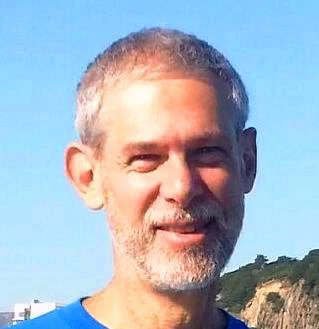Much of the discussion at the HLF-4 in Busan last week, as well in the months leading up to the event, was focused on forging consensus around a new global development cooperation partnership framework that would accommodate the interests and unique cooperation modalities of new partners such as China, Brazil, and India. The agreement by these and other new development actors to sign on to the HLF-4 Outcome Document is an important achievement and key step towards such a partnership.
The need for a new framework stems from a growing recognition and acceptance that it is not politically feasible (and some have argued not even desirable) to apply the same architecture and principles that have governed the development cooperation activities of OECD-DAC members (often collectively referred to as “traditional donors”) and of multilateral development institutions to the new partners, who operate in a very distinct manner under the banner of South-South Cooperation.
Take China for example. While China has become a contributor to IDA and has increased its bilateral assistance, the bulk of its development cooperation falls outside of the narrow definition of Official Development Assistance. Cooperation is provided instead through an integrated package of aid, trade, and investment, combining features of both development and economic cooperation, and focused in particular on the infrastructure sector, where China has become the number one source of financing for many countries. Examples of this unique approach are the multi-billion dollar infrastructure for resources deals that China has signed with several countries.
China’s development cooperation also differs from that of traditional donors in that it rarely involves financial transfers or budget support, but instead involves turn-key provision (by Chinese contractors) of facilities (schools, hospitals, government buildings, sports stadiums) or infrastructure. Furthermore, China stresses the concepts of mutual benefit and “win-win” outcomes as fundamental principles of its cooperation, stressing that both China and the recipient countries should benefit from economic relationships. And finally China’s assistance is provided without policy conditionality.
Looking at this approach, it is not difficult to see the incompatibility with several aspects of the Paris/Accra principles and commitments (e.g. untying of aid), nor to understand why China and other new development partners have resisted attempts to bring their development cooperation under the Paris/Accra framework. Some recipient countries are also wary of such attempts, for fear that holding the new partners to Paris/Accra principles would constrain the very characteristics (flexibility, speed of delivery, no-strings-attached) that they so much value in the cooperation these partners provide. However other recipient countries have expressed concern about increased fragmentation of aid arising from failure of some of the new partners to join established coordination mechanisms.
A key achievement of HLF-4 is that it moves discussion of development cooperation modalities away from the dichotomy of North-South versus South-South to the recognition of a continuum of vertical, horizontal and triangular partnership modalities, with each offering positive benefits and opportunities for achieving shared objectives. This is a view that is very much in keeping with the World Bank’s vision of the democratization of development.
The HLF-4 process and outcomes also highlight the opportunities for mutual learning, both in terms of sharing of development experience, and in terms of modalities and approaches to aid delivery. Indeed, there is a lot that traditional providers of development cooperation/assistance can learn from new partners on aspects such as speed and efficiency of project implementation, and effective integration of trade, aid, and investment, while new partners can learn lessons – both positive and negative – from the decades-long experience of traditional development partners, particularly on issues such as evaluation, capacity development, and monitoring of results.
The HLF-4 Outcome Document is also notable in identifying a set of shared principles, while accepting the need for a differentiated approach to commitments, given the variance in circumstances of the traditional and new development partners.
One over-arching principle on which there seems to be consensus among traditional donors and new development partners alike is that of country ownership – recognizing that development priorities and programs need to be driven by the recipient countries themselves.
On the other hand, there is less of a consensus on the principle of transparency and mutual accountability, as some development partners are reluctant to commit to making a full range of information about their development cooperation activities publicly available.
This is unfortunate, as I believe that country ownership and transparency/accountability are closely linked, around a principle of informed choice. One of the important benefits of the emergence of new development partners (in addition to their important financial and knowledge contributions) is that they offer recipient countries a wider range of options, both in terms of development solutions and modalities of cooperation. However, in order for recipient countries to take full advantage of the choices available, and to be fully in the driver’s seat in their relations with development partners, it will be important for them to have more complete information about what is on offer in terms of levels and conditions of assistance, and on the real terms of the various deals that are brought to the table.
Let’s hope that the new global partnership forged in Busan will lead to greater mutual understanding among old and new partners, and ultimately to improved development outcomes. This ultimately will be HLF4’s true measure of success.


Join the Conversation